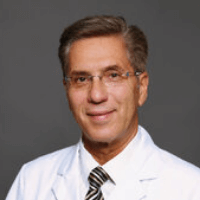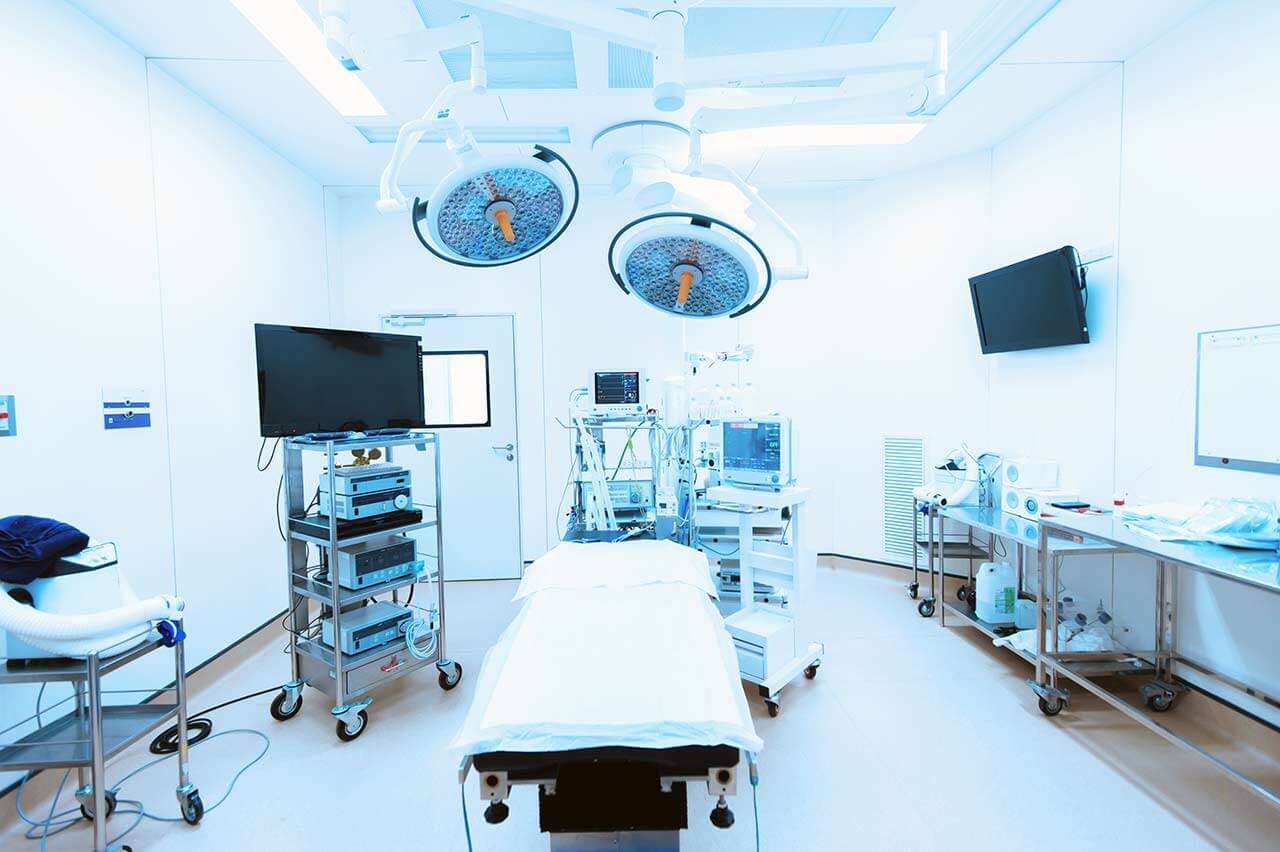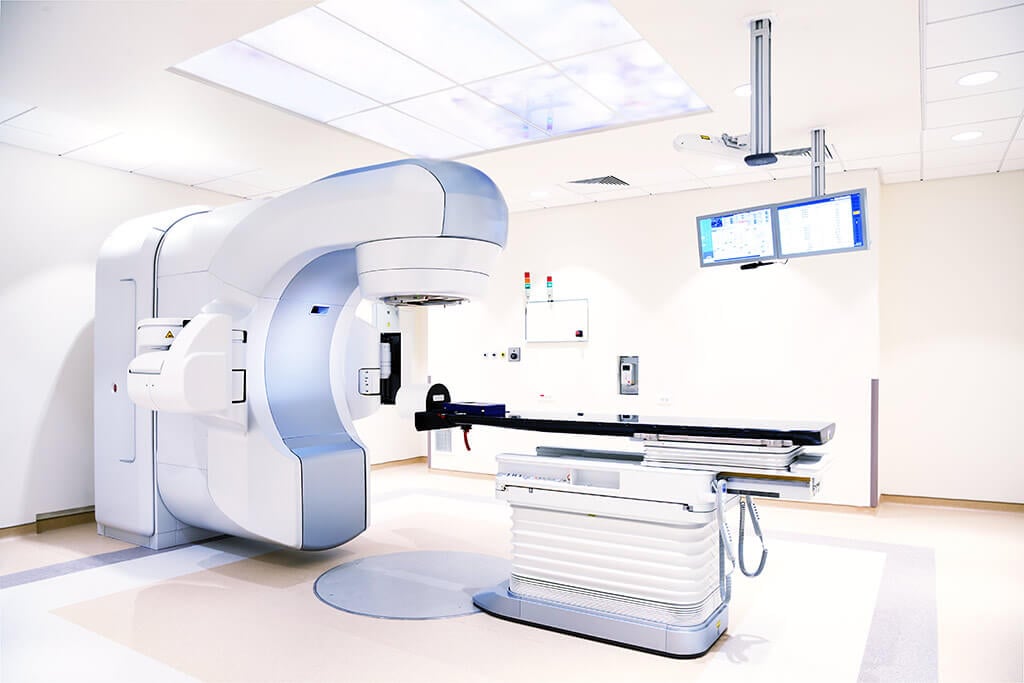
The program includes:
- Initial presentation in the clinic
- clinical history taking
- physical examination
- review of medical records
- laboratory tests:
- complete blood count
- general urine analysis
- biochemical analysis of blood
- indicators of inflammation
- indicators blood coagulation
- ultrasound of the urogenital system
- preoperative care
- sclerotherapy
- symptomatic treatment
- control examinations
- cost of essential medicines and materials
- nursing services
- full hospital accommodation
- explanation of future recommendations
Required documents
- Medical records
- Ultrasound scan (if available)
Service
You may also book:
 BookingHealth Price from:
BookingHealth Price from:
About the department
The Department of Adult and Pediatric Urology, Andrology at the Catholic Clinic Koblenz-Montabaur provides top-class medical services to patients with diseases of the kidneys, bladder, urinary tract, and male genital organs. The department's team of doctors treats patients of all age groups, including children and adolescents. The specialists provide effective treatment of the full range of urologic diseases, ranging from inflammatory processes, functional disorders, and malformations to cancer. Of particular interest are surgical interventions for benign and malignant kidney, bladder, and prostate tumors, urinary incontinence, and congenital malformations of the genitourinary system in boys. Most surgical procedures are performed using minimally invasive techniques, which contributes to the rapid recovery of patients in the postoperative period. In addition, many surgical interventions are performed on an outpatient basis without mandatory hospitalization. The department also admits men with andrological diseases, among which the most common are erectile dysfunction and infertility. 20 beds are available for patient hospitalization. The department has created optimal conditions for providing high-quality medical care in a comfortable environment. The Head Physician of the department is Dr. med. Constantin Charvalakis.
One of the primary areas of work for the department's urologists is the treatment of prostate cancer, which is one of the most common types of cancer in men. At the diagnostic stage, a patient with suspected prostate cancer is prescribed a set of procedures, such as a digital rectal examination, a prostate-specific antigen (PSA) test, a transrectal ultrasound scan of the prostate, a biopsy, and CT and MRI scans. If the diagnostic results confirm prostate cancer, the department's doctors will immediately begin to develop an optimal treatment regimen. The treatment tactics depend on the stage of the oncological process, so the lower the stage of the pathology, the more sparing the treatment will be. In the early stages of prostate cancer, the tumor does not spread beyond the capsule of the organ and does not have metastases, so a radical prostatectomy is the gold standard of treatment. The department's specialists usually perform it with the help of low-traumatic surgical techniques. During the surgical procedure, the tumor and the affected lymph nodes are removed, while surgeons almost always manage to maintain erectile function and control of urination. In addition to surgery, patients with prostate cancer are also prescribed systemic treatments such as chemotherapy, hormone therapy, immunotherapy, and targeted therapy. With appropriate clinical indications, the patient may also be indicated for radiation therapy: external beam or contact (brachytherapy).
The department also provides comprehensive treatment for kidney cancer. The diagnostic protocol for suspected kidney cancer includes laboratory blood and urine tests, ultrasound scans, X-ray or computed tomography scans, and a biopsy followed by a histological examination. It is important for the department's urologists to determine the size of the tumor and find out whether the malignant neoplasm spreads beyond the kidney to develop an optimal treatment regimen, so advanced laboratory diagnostics, abdominal and pelvic ultrasound scans, and CT scans of the chest and brain may be additionally required. With comprehensive diagnostic data in hand, doctors begin treatment. The first-line treatment is usually surgery, whose extent depends on the stage of the kidney cancer. Whenever possible, preference is given to organ preservation surgery, during which only the tumor is removed. In complex cases, the department's surgeons perform a radical nephrectomy, which is total kidney removal with adjacent lymph nodes and tissue. The operation is complemented by an individually developed conservative treatment regimen, which may include chemotherapy, radiation therapy, immunotherapy, targeted therapy, etc.
The department successfully treats benign urologic diseases. Patients with kidney stone disease often seek help at the medical facility. The formation of large stones in the organs of the urinary system causes severe symptoms, such as renal colic, pain during urination, difficulty urinating, nausea and vomiting, chills, weakness, fatigue, etc. The department uses a modern method of extracorporeal shock wave lithotripsy (ESWL) to treat urolithiasis. The procedure is non-invasive and takes about 40 minutes. During ESWL, no tissue incisions are made, the risks of bleeding are maximally excluded, and there is practically no pain syndrome. Sedation is used for the procedure, so general anesthesia is not required. Before performing extracorporeal shock wave lithotripsy, the patient assumes a prone position, after which the doctor determines the exact location of the calculus using ultrasound or X-ray scanning. Then, using a device that generates waves of the desired frequency, length, and intensity, doctors crush the stones into small fragments. The fragments of the calculus are excreted from the body in urine. Whenever required, the patient can undergo several sessions of ESWL.
The treatment of urologic diseases in children is of particular importance in the department's clinical practice. The key areas of specialization for pediatric urologists include the treatment of kidney tumors, vesicoureteral reflux, cryptorchidism (undescended testicles), enuresis, phimosis, varicocele, and other diseases. Vesicoureteral reflux is one of the most common forms of urodynamic disorders in childhood. With this disease, the child has retrograde reflux of urine from the bladder back into the ureter. Due to this pathology, children have an increased risk of developing kidney dysfunction, urinary tract infections, and chronic pyelonephritis. Treatment for vesicoureteral reflux depends on whether it is primary or secondary. In the secondary form, therapeutic measures are aimed at eliminating the underlying disease that provoked the development of vesicoureteral reflux, for example, cystitis or bladder dysfunction. If the diagnosis of primary vesicoureteral reflux is confirmed in a child, an endoscopic surgical intervention will be indicated for him. Endoscopic surgical techniques are less traumatic and safer, so children tolerate such operations well.
The department also offers the services of andrology specialists. They mostly treat erectile dysfunction and male infertility. Erectile dysfunction is the inability to achieve or maintain an erection sufficient for sexual intercourse. In most cases, erectile dysfunction develops due to psychological disorders (depression or stress), vascular pathologies, or hormonal imbalances. To develop an optimal treatment regimen, the patient undergoes comprehensive diagnostics, including laboratory blood and urine tests, infection tests, Doppler ultrasound of penile blood vessels, ultrasound scanning of the abdominal cavity and prostate, and neurological diagnostics. Based on the diagnostic results, an individual treatment regimen is developed. The department's specialists often prescribe only drug therapy, psychotherapy, vacuum therapy, massage, and physiotherapeutic procedures. The last-line treatment, which is carried out in complex cases of erectile dysfunction, is a surgical intervention. This may be penile vein ligation or penile implant surgery.
The main areas of the department's clinical activity include:
- Urology
- Treatment of malignant urologic diseases
- Surgical treatment
- Open and laparoscopic operations for kidney, ureteral, bladder, prostate, and testicular tumors
- Removal of the prostate gland with affected lymph nodes (classical and laparoscopic techniques with an approach through the perineum or abdominal cavity)
- Organ-preserving kidney surgery and radical nephrectomy for kidney cancer
- Bladder resection with subsequent formation of an artificial bladder from the tissues of the small or large intestine
- Conservative treatment
- Chemotherapy
- Immunotherapy
- Hormone therapy
- Targeted therapy
- Radiation therapy
- Photodynamic therapy for bladder tumors
- Surgical treatment
- Treatment of benign urologic diseases
- Minimally invasive interventions
- Endoscopic interventions for benign prostatic hyperplasia
- Minimally invasive surgery for benign bladder tumors through the urethra (transurethral resection)
- Minimally invasive laser treatment for urethral, bladder neck, and prostate diseases
- Minimally invasive surgery for injuries of the kidneys, ureters, bladder, urethra, and male genital organs
- Minimally invasive surgery for urolithiasis
- Minimally invasive surgery for urinary incontinence: synthetic sling and artificial sphincter implantation
- Urolithiasis treatment using extracorporeal shock wave lithotripsy (ESWL)
- Minimally invasive interventions
- Treatment of urologic diseases in children
- Conservative and surgical treatment of kidney tumors in children
- Conservative and surgical treatment of vesicoureteral reflux and other urinary outflow disorders
- Conservative and surgical treatment of cryptorchidism
- Conservative and surgical treatment of phimosis
- Conservative and surgical treatment of varicocele
- Conservative and surgical treatment of enuresis
- Surgical correction of urethral malformations
- Treatment of malignant urologic diseases
- Andrology
- Conservative and surgical treatment of erectile dysfunction
- Conservative and surgical treatment of male infertility
- Male sterilization (vasectomy)
- Male genital plastic surgery
- Other medical services
Photo of the doctor: (c) Katholisches Klinikum Koblenz - Montabaur
About hospital
The Catholic Clinic Koblenz-Montabaur is a modern medical facility with an excellent reputation in Germany and abroad. The medical center is an academic clinic of the University Hospital Mainz, which gives patients the opportunity to take advantage of scientific advances and innovative treatments. The clinic has the widest possibilities for providing effective medical care to patients with both common and especially complex and rare pathologies. In December 2017, the clinic was certified in accordance with DIN EN ISO 9001:2015 standards, and in 2020, it was successfully recertified, which is a confirmation of the high quality of medical service. The clinic has 20 departments with 17 highly specialized centers integrated into them. The bed fund of the medical facility includes 657 beds. More than 32,000 inpatients and about 133,000 outpatients receive medical care here annually.
Many medical specialties are available at the clinic, including general and abdominal surgery, bariatric surgery, vascular surgery, thoracic surgery, cardiology, pulmonology, gynecology, urology, neurology, orthopedics, traumatology, radiology, nuclear medicine, and others. Each of the medical specialties is represented by an experienced team of doctors and nursing staff who do their best to restore the patient's health. Doctors of various medical fields work in close cooperation, which allows for an interdisciplinary approach to solving health problems.
The pride of the clinic is the advanced technical base, which plays an important role in accurate examinations and effective treatment. For example, the operating rooms at the clinic are equipped in accordance with the current requirements of European medicine, due to which most surgical interventions are performed using sparing techniques, including laser surgery, video-assisted thoracoscopic surgery, arthroscopy, endovascular and hybrid surgical techniques, etc.
Despite the clinic's high-tech infrastructure, there is an atmosphere of understanding, sympathy, and respect for the patient. The medical team shows a humane attitude towards patients and takes care of their comfort throughout the entire period of treatment. Doctors devote enough time to personal communication with patients, which makes it possible to take into account their individual needs and wishes during the therapeutic process.
Photo: (с) depositphotos
Accommodation in hospital
Patients rooms
The patients of the Catholic Clinic Koblenz-Montabaur live in comfortable single and double rooms with light colors and modern design. Each patient room has an ensuite bathroom with a shower and a toilet. The furnishings of a standard patient room include an automatically adjustable bed, a bedside table, a wardrobe, a table and chairs for receiving visitors, and a TV. The telephone is provided for a fee. Wi-Fi is available upon request.
The clinic also offers enhanced comfort rooms corresponding to the level of a five-star hotel. These patient rooms are more spacious and have a sophisticated design. The bathroom of the enhanced comfort rooms has a set of toiletries, changeable towels, and a bathrobe.
Meals and Menus
The patient and the accompanying person can choose meals from three menus daily. If, for some reason, you do not eat all the foods, you will be offered an individual menu. Please inform the nursing staff of your dietary preferences prior to treatment.
Patients living in enhanced comfort rooms are additionally offered free soft drinks, coffee, tea, desserts, and fresh fruits.
Further details
Standard rooms include:
Religion
A Catholic liturgy is held every Sunday morning in the church at the clinic. The divine liturgy is also broadcast on the clinic's internal TV channel.
Accompanying person
Your accompanying person may stay with you in your patient room or at the hotel of your choice during the inpatient program.
Hotel
You may stay at the hotel of your choice during the outpatient program. Our managers will support you for selecting the best option.





